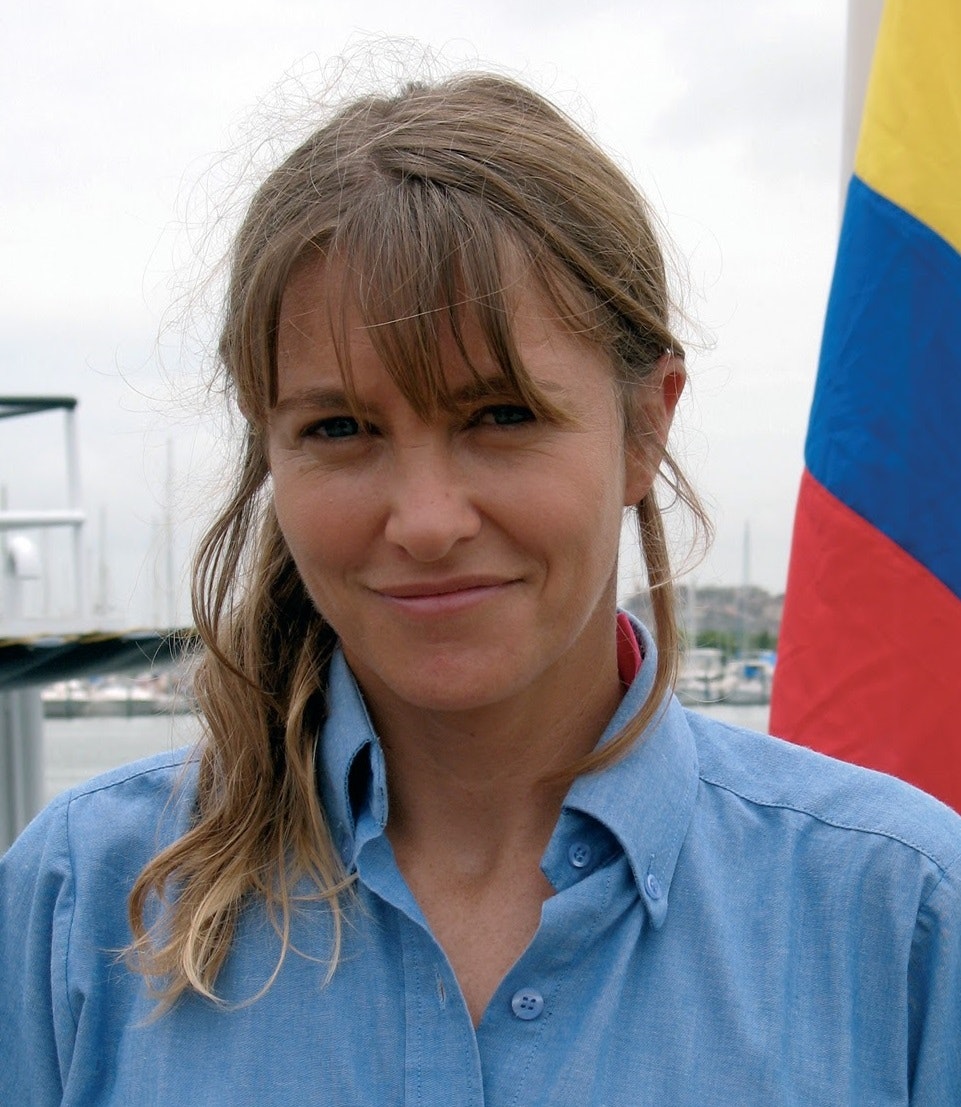Community and governmental involvement in shark conservation in the Malpelo World Heritage Site, Colombia
Malpelo Island, in the extraordinarily biodiverse seas around Colombia, is only a small dot in the oceanic landscape but has gained worldwide acclaim as a global hotspot for marine life. The islands’ waters host hundreds of hammerhead sharks who come here to reproduce, as well as more than 30 other shark species, 17 threatened marine mammals and many other endangered bird, turtle, fish and corals that appear on the IUCN Red List.
Despite its importance, Malpelo was completely unprotected until ten years ago. Heavily over-fished, boats would anchor to the delicate reefs. Unsustainable fishing threatened the sharks, whilst pollution and ignorance on the island was destroying bird nesting areas.
The island is protected today largely through the efforts of young Colombian marine biologist, Sandra Bessudo, who is passionate about sharks and has worked to protect Malpelo since 1989. She was pivotal to efforts that made Malpelo a National Protected Area in 1995 and became Director of National Parks for the region. In 1999 she established the Malpelo Foundation, dedicated to preserving Colombian marine diversity. Now a leading NGO, the Foundation played a major role in Malpelo’s successful designation as a World Heritage Site last year with support from a Whitley Associate Award and other international donors.
Today the Foundation directly supports the National Park Authorities in management of Malpelo and raises awareness of marine life in schools and amongst the public. Sandra works closely with local fishermen to carry out monitoring to inform policy for sustainable use of Colombia’s marine resources. Central to Sandra’s work is her involvement in creating the first Marine Conservation Corridor for the Eastern Tropical Pacific.
Tagging sharks is not easy, but by using satellite telemetry, Sandra is learning how sharks use not only the waters around Malpelo, but the whole of the Eastern Pacific during their migrations. If successful, this major initiative will result in a managed marine area flowing from Cocos Island, Costa Rica, through the Galapagos in Ecuador, to Malpelo in one single conservation zone without political boundaries.
Key facts:
- At 8,575km2 Malpelo Island is the world’s ninth largest marine protected area.
- In 2000, Sandra discovered a new species of deep water shark Odontaspis ferox, first seen alive at Malpelo.
- Malpelo is recognised as a UNESCO World Heritage Site (2006), Special Sensitive Zone by the International Maritime Organisation (2002) and Important Bird Area (2005).
Sandra left Malpelo Foundation in 2010 to work with the Colombian Government. In 2011, WFN awarded Continuation Funding to enable Sandra’s colleague German Soler to expand their successful work.
PROJECT UPDATE
2020 CONTINUATION FUNDING
Project: Working towards protection of an important hammerhead shark nursery on the Colombian Pacific coast
Continuation Funding Award: £70,000 over 2 years
Hammerhead sharks are a high priority for conservation, as the global population continues to decline. In 2019 the species was uplisted to Critically Endangered on the IUCN Red List. Since 2018, Sandra and her team have been searching for shark nursery areas in the Tribuga Gulf. They have discovered one such area in the community of Jurubirá where the primary threat is not meat consumption but incidental bycatch: approximately 200 sharks are lost per day due to the type of hooks used by fishers.
With Continuation Funding, Sandra and her team aim to delineate this nursery area and determine seasonal abundance by installing 8 acoustic receivers and tagging 85 juvenile sharks. They will also implement 4 hook exchange campaigns with 30 local anglers to reduce shark bycatch by 50%. Lastly, they want to raise environmental awareness by organising talks on the importance of the species and their marine habitat. Through scientific backing and community engagement, this work will feed into future plans to protect the hammerhead shark in the Colombian Pacific.






